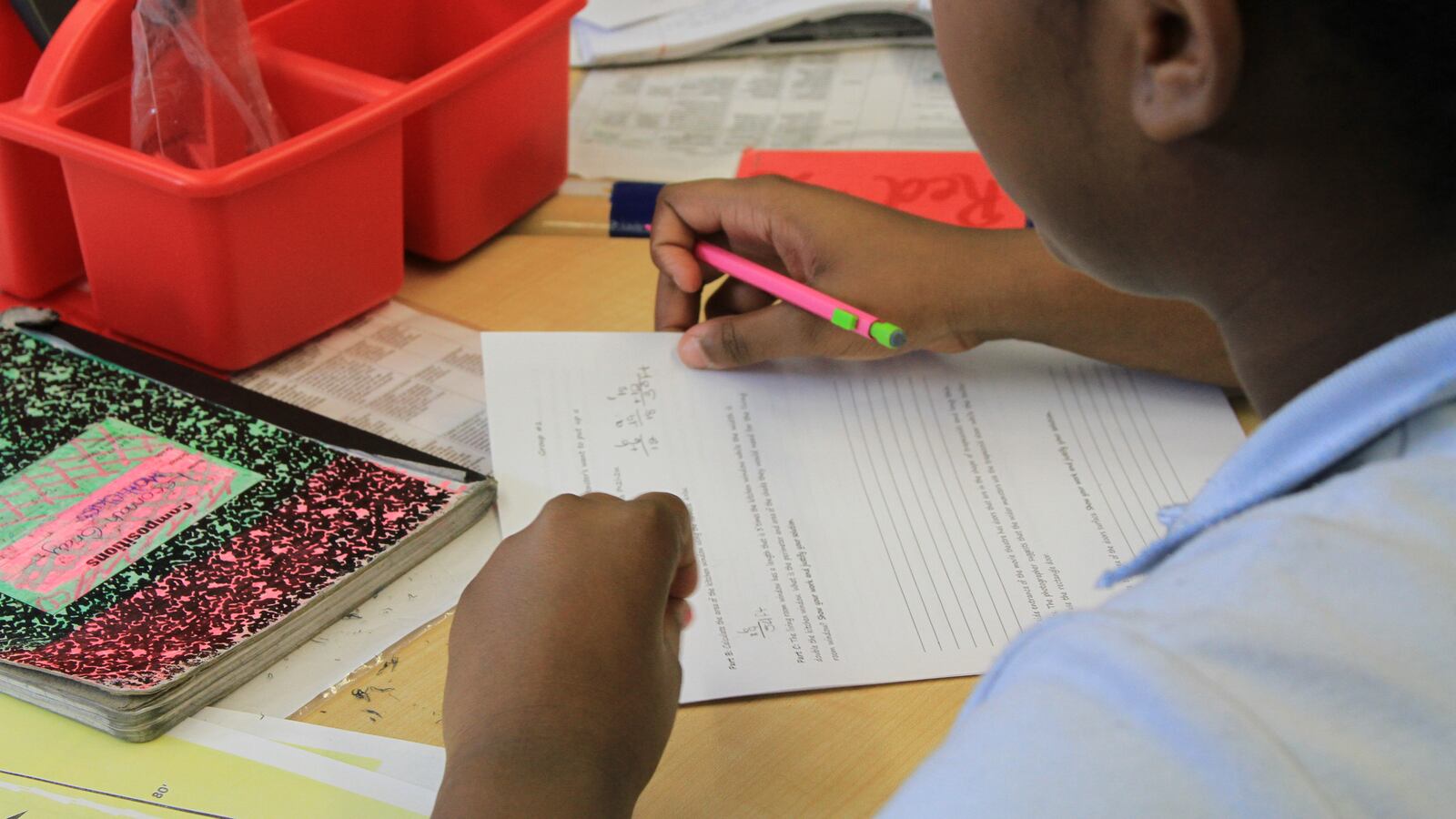The future of teacher evaluations in New York state appears more unclear than ever.
With six days left to craft an on-time state budget, lawmakers have only just begun to seriously negotiate how to overhaul the state’s nascent teacher-grading system. And with Gov. Andrew Cuomo’s plan garnering little support from lawmakers (or elsewhere), there is now uncertainty about both the specific changes coming and about who will make the decisions, according to recent news reports.
Gov. Cuomo has been pushing a proposal that would increase the weight of state test scores and diminish the role of principals. In his proposal, 50 percent of a teacher’s annual ratings would be based on student test scores, 35 percent on observations by outside evaluators, and 15 percent on principal observations.
This week, the Assembly and the Senate proposed two alternatives that would put off decisions until after a budget is passed, Capital New York reported. The Senate wants to establish a six-person committee of lawmakers to study the issue and come up with a new system, while the Assembly wants to hand the process over to the State Education Department and the Board of Regents.
Earlier this week, Cuomo indicated that he remained firm on his evaluation proposal. The hard-line stance has infuriated teachers unions, but it has even begun to alienate teachers who once supported the governor’s education policies.
“To say the least, it’s unsettling, and to be honest it’s rather frustrating and disheartening that the governor is playing politics so blatantly with public schools,” said Nick Lawrence, who Cuomo appointed to a panel that advised him on the state’s bumpy Common Core rollout last year.
Cuomo has not stated publicly if he supports the legislature’s proposals. In either case, according to timelines offered by lawmakers this week, it would be at least two more months until any changes were announced. Plans announced in the summer could come too late to implement by the first day of school — and some of those who would be affected most said that prospect was anxiety-producing.
“I’ve been teaching three years and I’ve seen three different types of evaluation systems,” said Paul Asjes, a seventh-grade math teacher in the South Bronx. “The lack of consistency is very frustrating.”
Asjes began teaching in 2012, when teacher performance was judged using two categories — unsatisfactory and satisfactory — and nearly everyone earned a satisfactory rating. Last year, he was rated on a new, four-category evaluation system, which schools implemented with just three months notice. Getting there was a four-year process involving lawsuits with teachers unions, frequent labor battles between city officials and the city teachers union.
This year, schools are still using the new system, though teachers are being judged on fewer individual skills during classroom observations, a change that came out of an agreement between the city and the United Federation of Teachers. But Cuomo and others say the system has massive flaws, citing the 98 percent of teachers statewide who earned one of the top two ratings last year (91 percent of city teachers earned those ratings).
“It just makes it really difficult for schools and teachers to not have clarity around this,” said Evan Stone, co-CEO of Educators 4 Excellence, a teacher advocacy group. That group has proposed its own changes, which would eliminate the use of state test scores for teachers of non-tested subjects and add student surveys and peer evaluation.
“We need tweaks around the edges,” added Stone. “We don’t need to start all over.”
But the degree of discord between Cuomo and lawmakers in the legislature symbolizes a fundamental disagreement, said Aaron Pallas, a professor of education at Teachers College.
While many education leaders tout the evaluation system as a tool to provide teachers with feedback to help them improve, Pallas said, “The governor wants to identify a bunch of teachers who are ineffective and have a method to move them out of the system.”
“Stakeholders want different things out of an evaluation system,” Pallas said.
A spokesperson for Cuomo did not respond to requests for comment Thursday. In a statement, the governor less specific than earlier in the week about which policies from his budget proposal remained top priorities.
“I will not sign a budget without real ethics reform or agree to a dramatic increase in education aid without education reform that provides accountability, performance and standards,” Cuomo said.
For his part, Asjes said that more delays or dramatic changes to the evaluations will erode their credibility further among those they are designed to measure.
“I would start to tune it out after a few more years,” he said.

